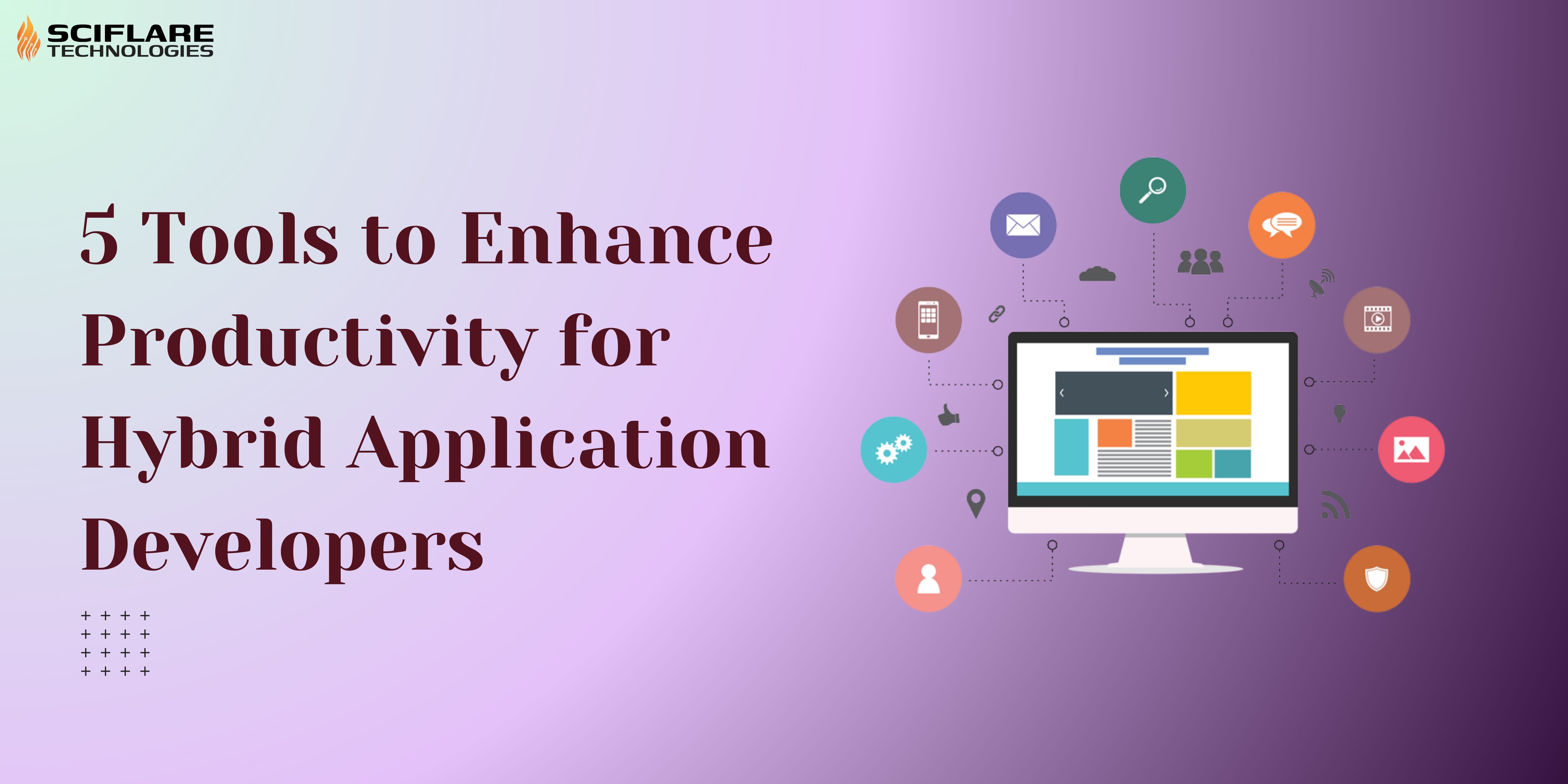5 Tools to Enhance Productivity for Hybrid Application Developers
 Carol lookwood
Carol lookwood
Integrated Development Environments (IDEs)
Integrated Development Environments (IDEs) are software applications that provide comprehensive tools and features to facilitate the development, testing, and debugging of computer programs. They typically include a code editor, a compiler or interpreter, a debugger, and for a hybrid application developer, a feature-rich Integrated Development Environment (IDE) is indispensable for streamlined coding and project management. Integrated development environments (IDEs) such as Visual Studio Code and WebStorm provide a wide range of specialized functionalities designed specifically for the development of hybrid applications. Visual Studio Code, specifically, is highly regarded for its versatility, providing a wide range of extensions that cater to various frameworks such as React Native and Ionic. Integrated Development Environments (IDEs) optimize the coding workflow by offering advanced code completion features and integrated debugging tools. This enhances the efficiency and reduces the likelihood of errors in the development of hybrid applications.
Cross-Platform Frameworks
Using robust cross-platform frameworks is a transformative factor for hybrid mobile application development. React Native, Flutter, and Ionic are widely recognized as leading frameworks in the field of mobile app development. React Native is a framework that allows developers of hybrid applications to utilize JavaScript and React in order to create applications that have a native-like user experience. Flutter, a cross-platform mobile development framework developed by Google, utilizes the Dart programming language and offers a comprehensive collection of pre-built user interface components. Ionic utilizes web technologies such as HTML, CSS, and JavaScript, enabling web developers to easily transition to mobile app development. These software frameworks greatly decrease the amount of time required for development and improve the performance and visual design of hybrid applications.
Testing and Debugging Tools
Efficient testing and debugging processes play a vital role in ensuring the delivery of high-quality hybrid applications. Appium and Selenium are software tools that enable automated testing on different devices and platforms. Appium is a software tool that provides support for native, hybrid, and mobile web applications on both iOS and Android platforms. This allows developers of hybrid applications to ensure that their apps function smoothly across various environments. Selenium, a widely-used framework for automating web applications, can also be utilized for conducting testing on hybrid applications. These software tools aid in the early detection and resolution of problems during the development process, thereby enhancing the dependability and efficiency of hybrid mobile applications.
Version Control Systems (VCS)
Version control systems, such as Git, are essential tools for code management and facilitating collaboration among developers. Version control platforms like GitHub and GitLab offer repositories that allow developers of hybrid applications to store, track, and manage their source code. These software tools enable concurrent collaboration among multiple developers on the same project, ensuring conflict-free work. The platform also provides functionalities such as issue tracking, pull requests, and continuous integration/continuous deployment (CI/CD) pipelines, which optimize the development workflow and improve efficiency in hybrid app development.
Design and Prototyping Tools
Designing user-friendly and aesthetically pleasing interfaces is a crucial aspect of hybrid application development. Design tools such as Figma and Sketch facilitate the prototyping and efficient design of user interfaces for hybrid application developers. Figma provides a set of real-time collaboration functionalities that enable developers and designers to collaborate effectively and work together in a synchronized manner. Sketch is widely recognized for its advanced vector editing features and extensive collection of plugins that enhance its functionality. These software applications assist in the development of user-centric designs, ensuring that hybrid applications deliver an engaging and consistent user experience across various devices and platforms.
Summary
Through the utilization of these five tools, developers of hybrid applications can greatly improve their productivity and efficiency. Integrated development environments (IDEs), cross-platform frameworks, testing and debugging tools, version control systems, and design and prototyping tools are fundamental elements in the toolkit for developing hybrid mobile applications. These resources optimize the software development lifecycle, minimize defects, and guarantee that hybrid applications meet stringent quality standards and provide an exceptional user experience. Adopting these tools will not only enhance the efficiency of hybrid application developers but also contribute to the overall success of their projects.
Subscribe to my newsletter
Read articles from Carol lookwood directly inside your inbox. Subscribe to the newsletter, and don't miss out.
Written by

Carol lookwood
Carol lookwood
I'm Carol Lookwood, with 5+ years in Mobile App Dev. I guide startups for a successful kickstart with market trends at https://sciflare.com.